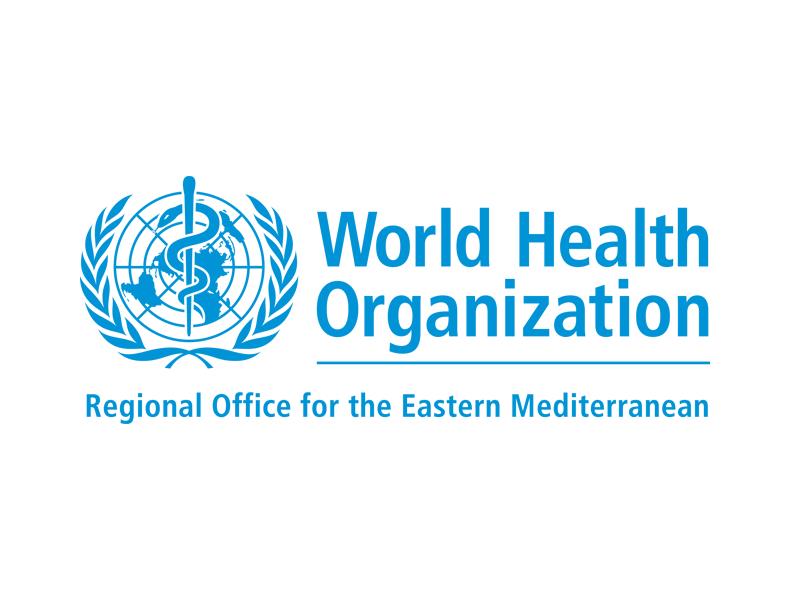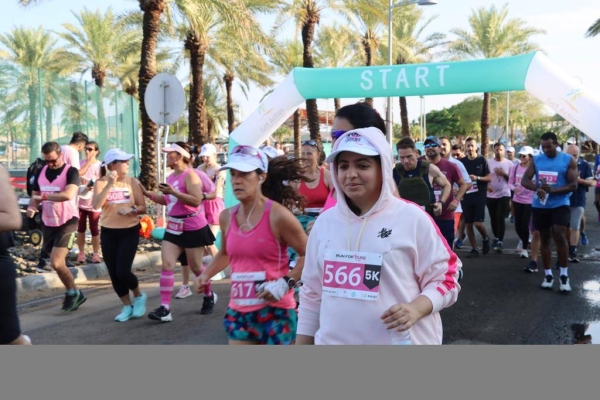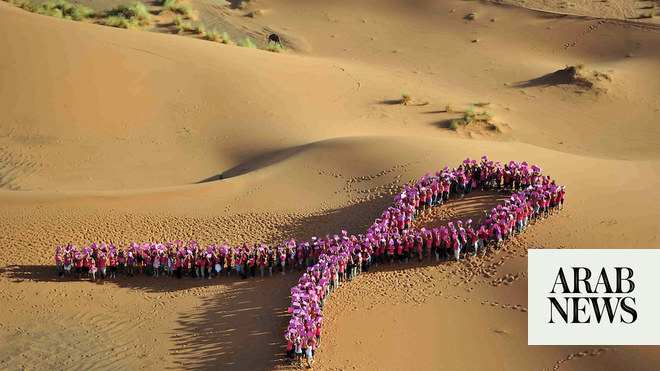
JEDDAH — The Saudi Society for Internal Medicine (SSIM) at King Abdulaziz University and the Saudi Oncology Society (SOS), in cooperation with AstraZeneca, organized the first virtual Saudi Women’s Cancer Summit earlier this week. Entitled ‘Redefining Care for Women’s Cancer’, the event brought together a distinguished group of experts from both inside and outside the Kingdom to discuss the latest advances in the treatment of tumours.
The Summit, attended by 441 women’s cancer experts, reviewed the latest developments in the diagnosis and treatment of ovarian and breast cancer types. A key element discussed was the role of Multidisciplinary Teams (oncology, gynaecological oncology, surgery, radiation oncology and pathology) in ensuring the early detection and treatment options in the management of ovarian and breast cancer in Saudi Arabia.
According to the National Cancer Research Institute in the United Kingdom, blood tests can be used to help detect ovarian cancer in its early stages in women with concerning symptoms. The American Institute for Cancer Research (2018) found ovarian cancer to be the eighth most common cancer among females worldwide, affecting more than 295,000 women annually.
Ovarian cancer is also one of the main causes of cancer deaths with an incidence rate of 6.6 per 100,000 patients in 2018. This is largely due to the fact that most women are only able to get a diagnosis after the cancer has already spread, making it more difficult to treat.
The Kingdom of Saudi Arabia’s Health Council, in collaboration with the National Health Information Centre, published a cancer registry and incidence report in 2015 detailing the age-standardised rate (ASR) and crude incidence rates for all cancer sites diagnosed within this year.
With 220 recorded cases, ovarian cancer was ranked as the seventh most common type of cancer among Saudi females and accounted for 3.3% of national cancer cases in 2015. The age-standardized rate (ASR) of ovarian cancer in 2015 was 5.9/100,000; the Riyadh region had the highest ASR in the Kingdom with 9.7/100,000 cases, followed by the Makkah region with 7.1/100,000 cases.
Breast cancer is the most common malignancy among Saudi females, with a recorded prevalence of 21.8% in the year 2015. According to a recently published survey of cancer-related mortality, it is the ninth leading cause of death among Saudi women.
The age-standardized rate for breast cancer was 24.3/100,000 in 2015, led by the Eastern region with a rate of 37.1 /100,000 cases, followed by the Riyadh region with 33.0/100,000 cases.
Dr. Shadi Khayyat, a consulting oncologist and assistant professor of internal medicine and oncology at King Abdulaziz University in Jeddah, and the conference chairman, commented on the importance of raising awareness about cancer research.
“Cancerous or malignant tumours are considered to be one of the biggest obstacles faced by societies today. In fact, the vast majority of people consider cancer to be cause for major concern and distress. Women in particular are considered to be vulnerable to certain types of malignant growth, such as ovarian and breast tumors.”
Dr. Khayyat emphasized that, with a growing number of cancer diagnoses, the primary aim for holding this conference was to discuss recent advancements in research and the various treatment options available to patients.
He thanked the Saudi Society for Internal Medicine at King Abdulaziz University for its sponsorship of this conference and extended his gratitude to AstraZeneca for its continuous support.
Dr. Meteb Al-Foheidi, president of the Saudi Oncology Society; co-chairman of the conference; Consultant of Oncology at Princess Nourah Centre and National Guard Hospital in Jeddah; Assistant Professor at King Saud bin Abdulaziz University for Health Sciences in Jeddah, said, “Both local and international experts participated in the Summit to shed light on the advancements in gynaecological cancer treatments and exchange expertise.
“This Summit was the first Saudi conference to specifically discuss gynaecological tumours, and I look forward to organising it annually to continue to raise awareness about ovarian and breast cancer and the steps we can take to support Saudi patients.”
The medical director of the Gulf Cooperation Council countries at AstraZeneca, Dr Ahmed Soliman, commented “It is important to keep all members of the scientific community, from pharmacologists through to doctors, up to date on the advancements in drug research related of ovarian and breast cancer. There is no doubt having an ongoing discussion via the right platforms will be beneficial to the medical professionals and, ultimately, to patients and caretakers”. — SG












